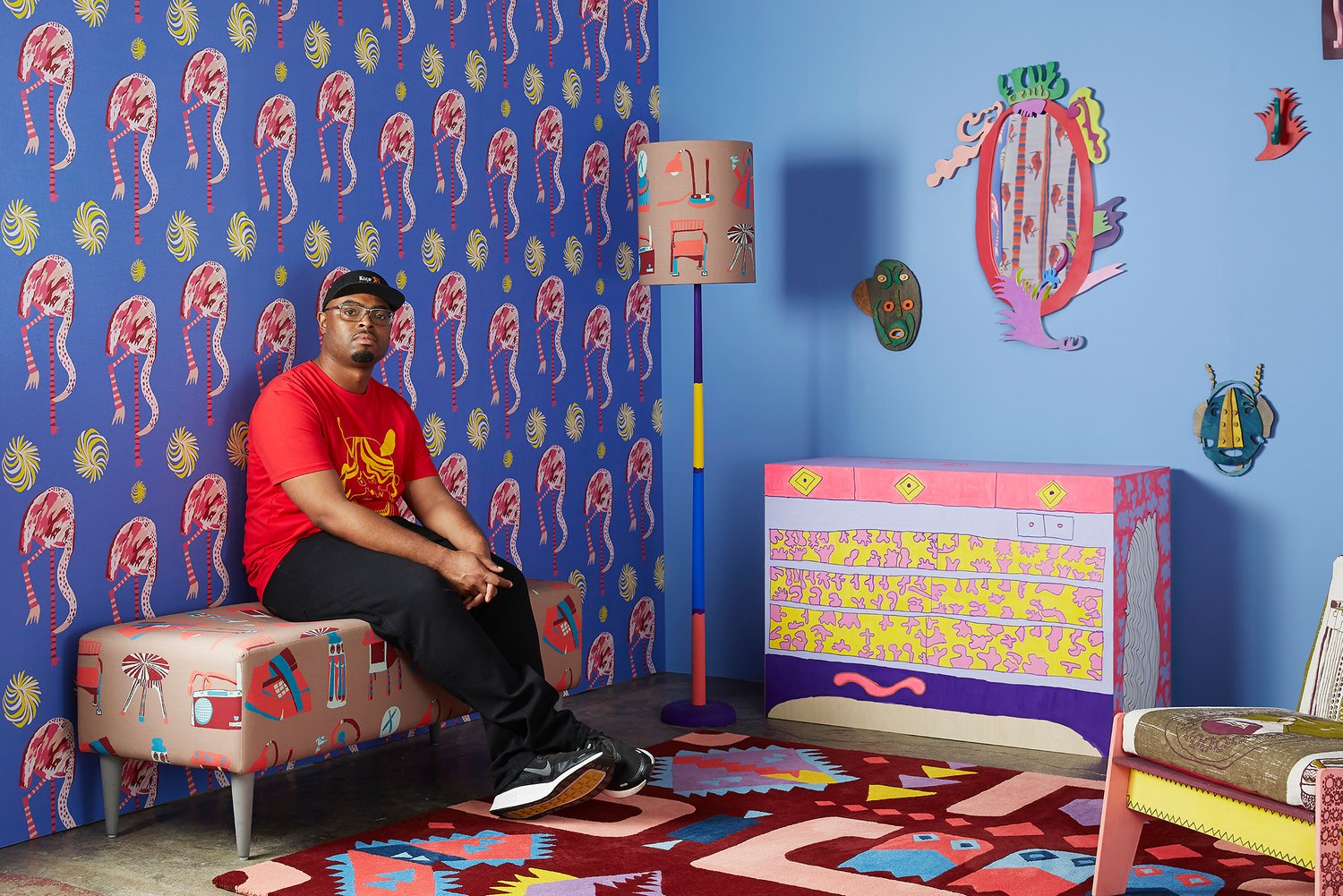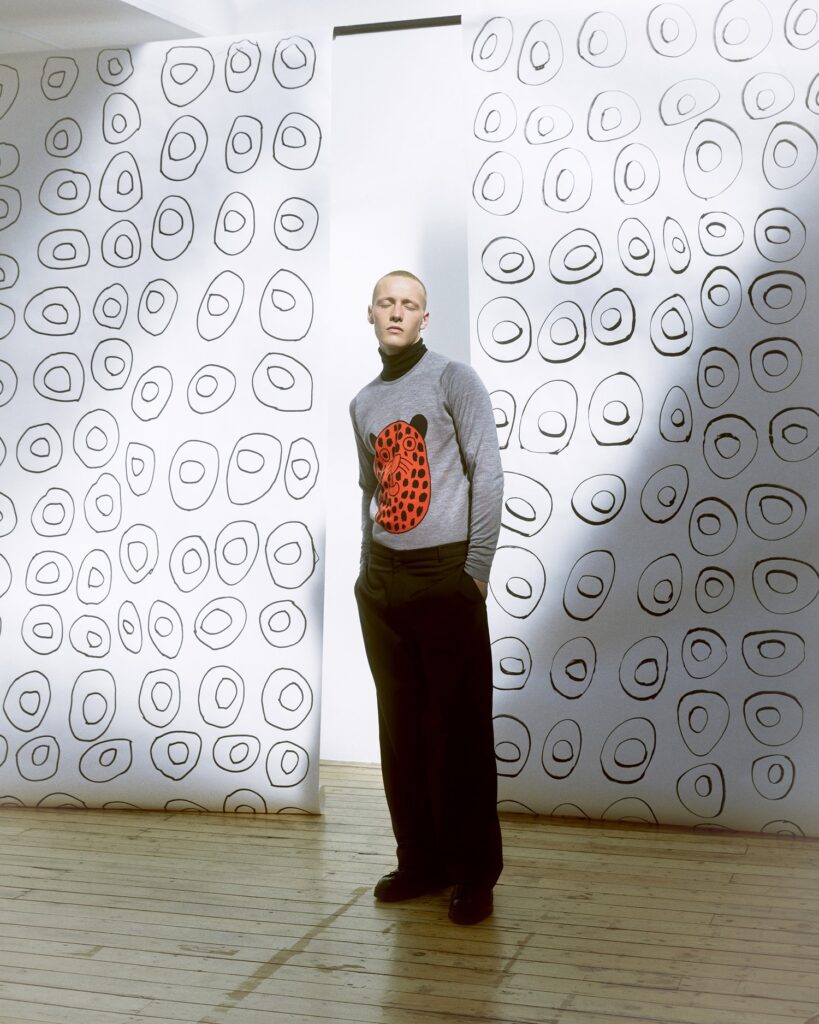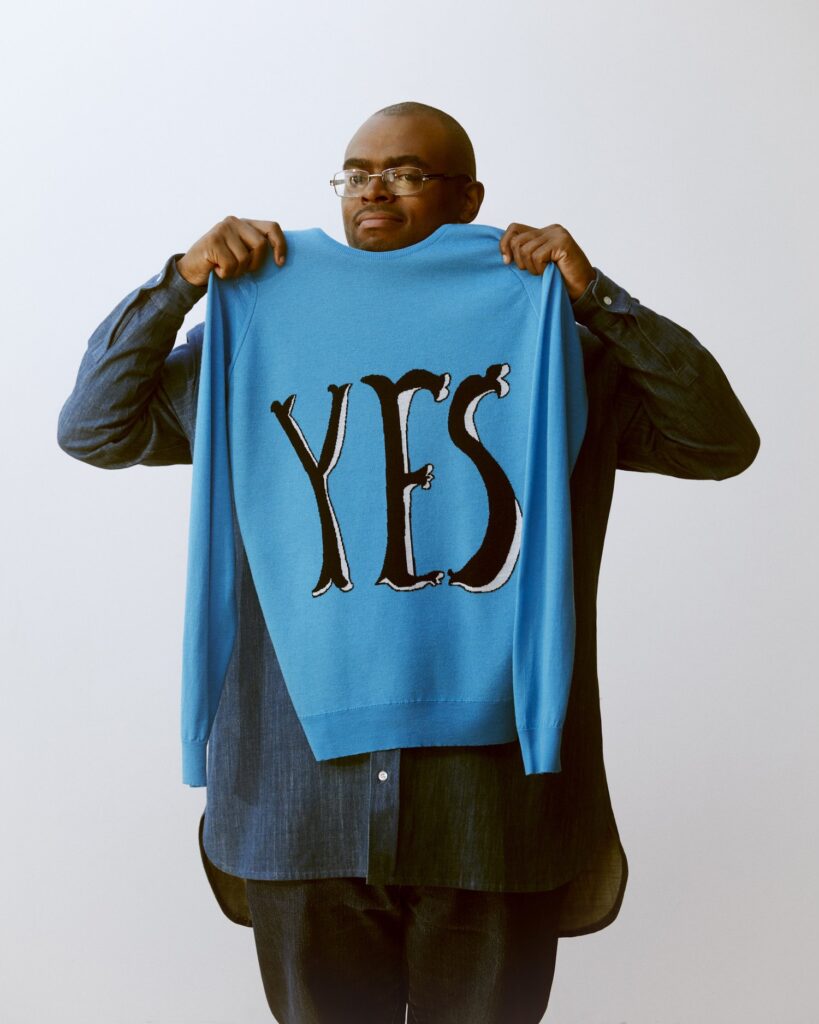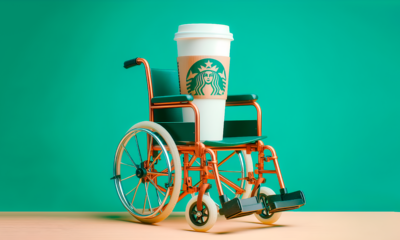Business
Trifle Studio: Multidisciplinary Design Studio Championing Those With Learning Disabilities

Trifle Studio: Showcasing True Diversity
Trifle Studio is the first multidisciplinary design studio in the UK that works solely with artists and designers who have learning disabilities. The studio was established in 2017 by London-based visual arts charity Intoart, which boasts a rich studio programme in Peckham Levels focusing on art, design and craft. The team wanted to house talented artists and designers within one company to make it easier for brands to reach formidable talent. Today, the Trifle Studio team have created award-winning work for clients including London Design Festival, Lush and the V&A Museum, spanning product design, illustration, fashion, interiors, textiles, homeware, editorial and advertising.

Trifle Studio © John Smedley
Trifle Studio’s mission is present in all the work its talented artists and designers produce. This important message is to address the underrepresentation of people with learning disabilities within the design industry by increasing their visibility, providing connections and bridging the gap they may have with commercial opportunities. Having access to this platform has sparked huge doses of creativity from so many talented souls and enabled them to work with brands they both admire and resonate with.
Two projects that really stand out so far on Trifle Studio’s journey are a collaboration with celebrated knitwear brand, John Smedley. For Jakarta Fashion Week, creative minds joined forces from each team to build a limited edition collection featuring hand-drawn designs by Trifle Studio designers; Andre Williams, Ntiense Eno-Amooquaye and Yoshiko Phillips. And, Room For Doubt by Andre Williams is a truly thoughtful and impactful design piece that portrays wry-humoured typography and hand-crafted objects into one full-scale interior space.

Trifle Studio © John Smedley
Also in need of a mention is the artist and resident Mawuena Kattah’s commission from a homeless charity Shelter. She was asked to draw a T-shirt design inspired by the company’s core belief that ‘Home is Everything’. Mawuene’s brilliant creation takes its notes from her Ghanaian heritage and more specifically a collection of her personal archive of family photographs. The result is a vibrant pattern that feels connected to her personal meaning of home is where the heart is.
“It is great to see diversity within the creative industries becoming an increasingly pertinent topic,” says Tom Dorkin, Trifle studio manager. “Our role is to remind people that there is still a long way to go in the sector – placing the lack of representation of people with learning disabilities at the forefront of our mission.”Expect to hear and see a lot more incredible art and design work from the talented Trifle Studio team. If you’d like to contact them to get involved, their details can be found here: https://www.triflestudio.com/contact
Business
Starbucks and its commitment to accessibility: Creating inclusive spaces for everyone

Starbucks Coffee Company announced on February 14th that it will leverage its growing store presence to support and promote the inclusion of partners, clients, and communities it serves. To achieve this, the company has created an Inclusive Spaces Framework, which aims to enhance independence, choice, and comfort for all its consumers and employees: “Building and scaling an Inclusive Store Framework is central to our mission of connection and will lead to greater access for all” stated Katie Young, Senior Vice President of Store Operations.
One of the first Starbucks customers based on the Inclusive Spaces Framework/Starbucks
Starbucks’s Inclusive Spaces Framework has been developed by a distinctive community of customers, workers, partners, and accessibility experts, with the primary goal of providing scalable accessibility solutions for all commercial spaces. This concept began to take shape during the Covid-19 pandemic, where social distancing and the risk of contracting the disease prompted some branches to create specific time blocks. During these blocks, immunocompromised, elderly, and disabled customers could shop in a less crowded environment.
Starbucks inaugurates its first café supported by the principles of the Inclusive Spaces Framework
On February 16th, Washington, D.C. became the first city to open a Starbucks designed to provide accessible service for everyone. These innovations include a multitude of improvements, both physical and digital, that streamline the entire customer interaction process with the establishment and staff, enabling unrestricted access.
A new employee at the Washington D.C. Starbucks showcasing the facilities/Starbucks
Among these novelties, the coffee company has highlighted updates to the point-of-sale (POS) systems, which have been transformed into portable devices, making it easier for customers to make purchases and acquire products. Through an intuitive design, supported by a voice assistant and accompanied by visual confirmations, this setup caters to the needs of all customers without any distinction.
On the other hand, this revamped store features new lighting and an improved sound system, both designed to offer a more inclusive experience by avoiding glare and reverberations. Additionally, the order tracking panels in this store have been updated, allowing customers to easily and instantly know which stage of preparation their purchase is in. Furthermore, multiple communication channels have been enabled to notify the customer when their order is ready.
Finally, the store has been designed to ensure the complete independence of people with disabilities when accessing and placing their orders. This is achieved through electric doors, which can be activated by a button at different heights and angles, reducing the effort required to open them. Additionally, continuous, and obstacle-free pedestrian pathways have been created, and the counters are lower with overhangs to accommodate wheelchairs, making interaction with employees and the store more accessible.
The new staff at Starbucks in Washington D.C./Starbucks
However, for most retail centers, remodelling their premises to comply with ADA (The Americans with Disabilities Act) regulations poses a significant challenge. That’s why Starbucks will not only begin remodelling its establishments but also ensure that its framework of inclusion is accessible to everyone, just like its stores. This framework will provide a gradual program for designing inclusive spaces that enhance the retail environment, surpassing the requirements of the ADA.
By: Álvaro Lago
For latest updates Download P+us app available on Google App Store
Business
Aarti Sahgal: Creating A World In Which People With Disabilities Belong

Aarti Sahgal is a woman with a mission. She is the founder and CEO of Synergies Work, a non-profit organization that helps entrepreneurs with disabilities develop sustainable enterprises. She is also a mother to two kids, one of whom has Down syndrome. She understands directly the obstacles and opportunities that individuals with disabilities experience in society, and she is committed to creating a world in which they belong.
Sahgal’s work grew out of her personal experience parenting a disabled child and discovering a lack of inclusivity and assistance in the education and employment systems. She recognized that people with disabilities possess special skills and capabilities that are frequently overlooked or underestimated by others. She chose to leave her corporate position and devote herself to enabling people with disabilities to achieve their hobbies and goals.

Synergies work provides end-to-end business solutions, bridging the opportunity gap between the disability and business sectors. It provides training, mentoring, funding, and networking opportunities for entrepreneurs with disabilities, as well as access to a varied and supportive community. It also collaborates with businesses and groups to increase disability inclusion and diversity in the workplace and marketplace.
Since its establishment in 2016, Synergies Work has assisted over 200 entrepreneurs, the vast majority of whom are women and people of color. The company aims to empower 1 million new entrepreneurs with disabilities by 2027 by collaborating with disability organizations and businesses that prioritize creating an inclusive ecosystem.
Sahgal aims to represent and reflect the different communities in which she works, as well as to foster a workplace climate in which everyone has the opportunity to participate, grow, belong, and succeed. Sahgal’s Disability Inclusion Action Plan aims to promote inclusivity and diversity as a source of strength and value.
By- Rowland Obiosah
Business
Unveiling P+US App (Plus News): A Revolutionary Leap in Inclusive Media!

In a groundbreaking move towards a more diverse and connected media landscape, the Brand Advance Group (BA Group) has just launched its latest venture – the P+US App, affectionately known as Plus News. This app is set to redefine the way the group’s audience can consume its news, serving as a dynamic platform bringing together voices from various communities, including Black & African American, Afrobeats, Hispanic, LGBTQ+, disABILITY, GenZ, and beyond.
This initiative is just the first step in the rollout of a new generation of media channels by the BA Group and its US Division, BA Diversity Media Inc. The P+US app stands at the forefront, embodying the commitment to amplify minority-owned and operated media.

To celebrate this monumental launch, the BA Group is extending exclusive invitations to the Generation Black and Generation Hispanic TV channel launch party. The first 100 individuals to download the app and share it within their circles will secure a coveted spot at this must-attend event, scheduled to unfold in the vibrant landscapes of both NYC and London come March 2024.
BA Group’s CEO, a visionary in the media industry, expressed enthusiasm about this transformative leap. “Launching this app to house our minority-owned and operated media is the first stage of our transition from an SSP business to a media owner for a new generation. With over 7 digital channels and 3 CTV channels, all powered by our cutting-edge Cultural Intelligence technology, the P+US app provides our readers with a seamless, centralized space to engage with our diverse content. From the streets of Africa to the landscapes of India, the urban beats of the UK to the vibrant scenes in Mexico – our talented writers from across the globe are bringing a fresh perspective to every news article. It’s an exciting time in our evolution!”
As we step into this new era of media, the P+US app promises not just news but an immersive journey into the diverse narratives that shape our world. Join the revolution, download P+US, and be part of the story as it unfolds from the heart of communities worldwide!
Google App Store:
https://play.google.com/store/apps/details?id=com.newandromo.dev2408362.app3483231

















